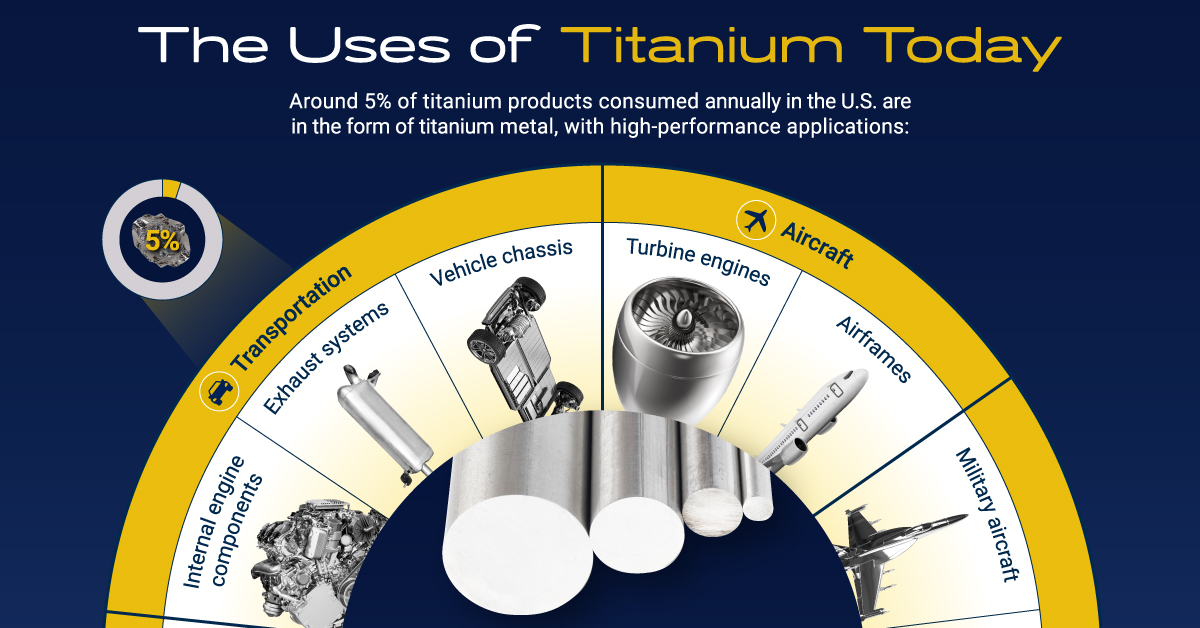Titanium: The Metal of the Future
Titanium is a popular metal, but are we harnessing its true potential or merely scratching the surface?
Despite having superior properties when compared to stainless steel and aluminum, titanium is produced and used on a relatively small scale. Its current applications are highly specialized, ranging from aircraft turbine engines to medical implants and military vehicles.
This infographic sponsored by IperionX explores titanium’s growth markets and potential for mainstream application in the future.
Titanium Production vs. Stainless Steel and Aluminum
Titanium’s high cost limits its applications and scale of production.
In fact, global titanium metal production is less than 1% of aluminum and steel production.
| Metal | 2021 production (million tonnes) | Price range per tonne |
|---|---|---|
| Aluminum | 67.2Mt | $3-4K |
| Stainless steel | 56.3Mt | $4-5K |
| Titanium metal | 0.3Mt | $13-16K |
Titanium is expensive because it is still processed and refined using the 80-year-old Kroll process. Invented by metallurgist William Kroll in 1940, the Kroll process is complex, energy-intensive, and carbon-intensive.
While titanium produced using the Kroll process is uneconomical for large-scale uses, cost-competitive and sustainably-produced titanium could kickstart a new Titanium Age.
The Growth Markets for Titanium
Titanium has untapped growth potential in many markets, but four industries stand out:
- Aerospace:
Titanium’s high strength-to-weight ratio and high melting point make it a critical material for aerospace and space exploration. The global space economy is growing exponentially, with space industry revenues projected to surpass $1 trillion by 2040 according to Morgan Stanley.
- Consumer Electronics:
In high-end consumer electronics like laptops and smartphones, titanium allows for stronger, lighter, and thinner products.
- Electric Vehicles:
Titanium’s properties allow the potential to significantly reduce the weight of EVs, improving battery efficiency and range. Tesla’s Model S uses a titanium underbody shield to protect the car from roadside damage, thanks to the metal’s exceptional strength-to-weight ratio.
- Luxury Goods:
Titanium’s durability and anti-corrosive properties make it an increasingly demanded premium product for luxury goods, including watches.
Dawn of the Titanium Age
Titanium is as strong as steel and 45% lighter, and twice as strong as aluminum. However, it has not achieved its potential because of high production costs.
With cost-competitive production, titanium has the potential to substitute stainless steel and aluminum, making many products stronger and/or lighter.
IperionX is a U.S. metals technology company developing the world’s first 100% recycled, low-cost, low-carbon titanium supply chain. Click here to learn more now.
In part 3 of the Titanium 101 Series, we will dive into foreign dominance of the titanium supply chain and the need to onshore production in the United States.




